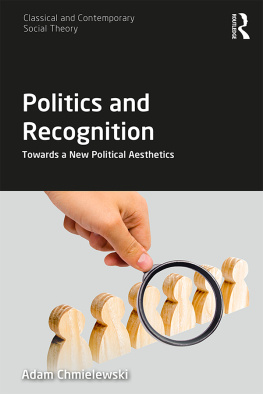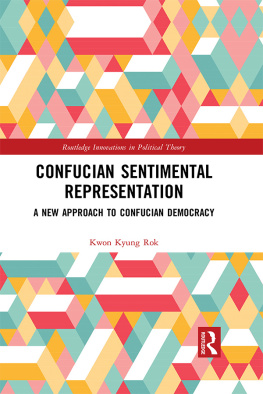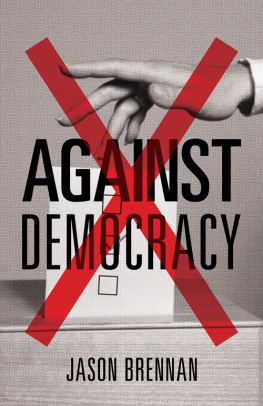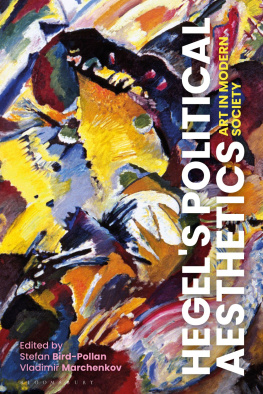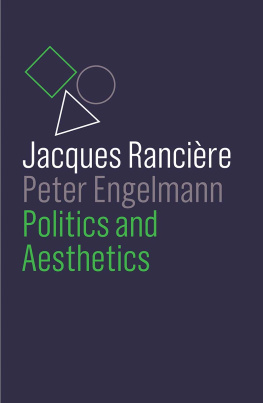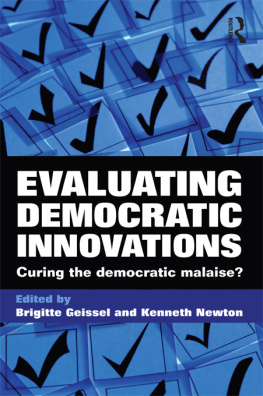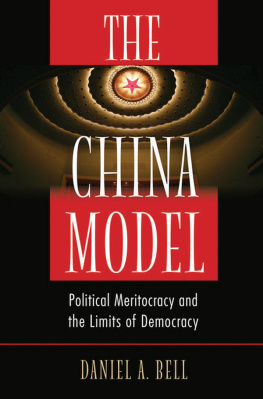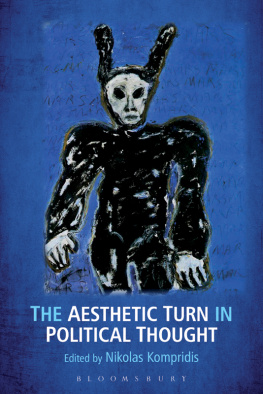Contents
Print Page Numbers

A great deal of writing on art and politics these days is interested in arts only as a form of political resistance. Alternately, there is a strain of study which circumvents big P politics, concentrating on community and conversation and process as ends in themselves. InAesthetics and Political Culture in Modern Society, Nielsen does something different. He reaches back to classical democratic and aesthetic theory to argue that art can facilitate the necessary conditions for democratic politics on a macro scale. For anyone interested in moving past resistance, or creating change that goes beyond micro-communities, this approach is essential.
Stephen Duncombe, Co-Director of the Center for Artistic Activism and Professor of Media and Culture, New York University
Criticising neoliberal technocratisation and the overall process of aestheticisation while at the same time showing the potentials of aesthetic practice in generating genuine political judgement, this book is an eye-opening analysis of different kinds of current aesthetic intervention within public space. Theoretically brilliant and powerful.
Birger Steen Nielsen, Professor, Roskilde University, Denmark
Aesthetics and Political Culture in Modern Society
Do aesthetic appeals to senses and emotions in political debate necessarily marginalise political reason and reduce citizens to consumers thus dangerously undermining democracy? Or is sensuous-emotional engagement, on the contrary, a basic fact of the political process and a crucial precondition for revitalising democracy?
Aesthetics and Political Culture in Modern Society investigates the current interrelationship between aesthetic practice and political practice in Western democracies, focusing on its impact on democratic political culture. Henrik Kaare Nielsen argues that aesthetic interventions in the political process do not by definition undermine politics content of reason. Instead, a differentiation must be made between a multiplicity of aesthetic forms of intervention some of which tend to weaken the political judgement of citizens while other forms tend to stimulate competent judgement.
This book will be of interest to scholars in the fields of political science, sociology, media studies, and cultural studies.
Henrik Kaare Nielsen is Professor of Aesthetics and Culture at Aarhus University, Denmark. He is an interdisciplinary researcher working in the field between the humanities and the social sciences. Author of 11 research monographs in Danish and numerous articles and chapters in academic journals and edited volumes, he is the editor of a number of academic books, including The Democratic Public Sphere: Challenges and Prospects (Aarhus University Press, 2016).
Routledge Innovations in Political Theory
For more information about this series, please visit: www.routledge.com/Routledge-Innovations-in-Political-Theory/book-series/IPT
Democracy Beyond the Nation State
Practicing Equality
Joe Parker
Reclaiming Representation
Contemporary Advances in the Theory of Political Representation
Mnica Brito Vieira (ed.)
Dignity and Human Rights
Language Philosophy and Social Realizations
Stephan P. Leher
A Conceptual Investigation of Justice
Kyle Johannsen
Compromise and Disagreement in Contemporary Political Theory
Christian F. Rostbll and Theresa Scavenius (eds)
Democratic Political Tragedy in the Postcolony
The Tragedy of Postcoloniality in Michael Manleys Jamaica and Nelson Mandelas South Africa
Greg A. Graham
Epistemontology in Spinoza-Marx-Freud-Lacan
The (Bio)Power of Structure
A. Kiarina Kordela
Aesthetics and Political Culture in Modern Society
Henrik Kaare Nielsen
Aesthetics and Political Culture in Modern Society
Henrik Kaare Nielsen

First published 2018
by Routledge
711 Third Avenue, New York, NY 10017
and by Routledge
2 Park Square, Milton Park, Abingdon, Oxon, OX14 4RN
Routledge is an imprint of the Taylor and Francis Group, an informa business
2018 Taylor and Francis
The right of Henrik Kaare Nielsen to be identified as author of this work has been asserted by him in accordance with sections 77 and 78 of the Copyright, Designs and Patents Act 1988.
All rights reserved. No part of this book may be reprinted or reproduced or utilised in any form or by any electronic, mechanical, or other means, now known or hereafter invented, including photocopying and recording, or in any information storage or retrieval system, without permission in writing from the publishers.
Trademark notice: Product or corporate names may be trademarks or registered trademarks, and are used only for identification and explanation without intent to infringe.
Library of Congress Cataloging-in-Publication Data
A catalog record for this title has been requested
ISBN: 978-0-8153-5642-4 (hbk)
ISBN: 978-1-3511-2316-7 (ebk)
Typeset in Times New Roman
by Wearset Ltd, Boldon, Tyne and Wear
I am very grateful to Senior Editor Natalja Mortensen and Editorial Assistant Maria Landschoot at Routledge for their encouraging and competent guidance and support throughout the publication process. I also thank other team members at Routledge for their friendly and professional assistance.
Further, I warmly thank the friends and colleagues who have commented on parts of the manuscript, not least the staff of the interdisciplinary research centre The Democratic Public Sphere Current Challenges and Prospects (20122016), which I had the pleasure of leading.
Special thanks to librarian Jette Bohn from stetikbiblioteket, Aarhus University Library, for her immense and competent help in providing the necessary materials.
Last, but not least, thanks a lot to my wife, Lotte Philipsen, for encouraging me to write the book and for backing me morally in the process.
This book is to some extent based on my Danish book stetik og politisk offentlighed of 2014. However, the present volume as a whole has been written and prepared thoroughly in order to constitute a new, coherent entity. The argument has been condensed in some parts and elaborated in others. Further, new empirical examples have been added, some specific Danish material has been replaced by international parallels, and some chapters have been rewritten entirely.
I am very grateful to Aarhus University Research Foundation for funding the clearing of permissions for copyrighted illustrations and the preparing of the indexing.
Basic Themes and Overview
This book aims to revitalise the discussion on democracy and political culture and to point out the democratic challenges and the prospects of the present situation of Western democracies. The aim is to throw new light on the complexity and the importance of societys public interactions and specifically to analyse and estimate the potentials and risks for democracy represented by aesthetic interventions in the political public sphere.
It is a core principle of Western democracy that political decisions at any time should be able to be legitimised in relation to the ongoing public opinion formation that emerges from communicative struggles and dialogic exchange among free, autonomous citizens. And correspondingly, for the ordinary citizen, engagement in public debate on common concerns of society represents the legitimate way of influencing political decision-making. This principle holds a central position in modern political philosophy, and it has been implemented widely as the normative foundation of the institutions of democratic nation-states.


